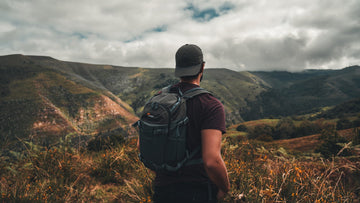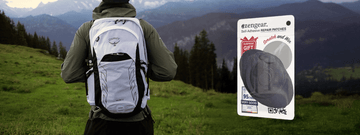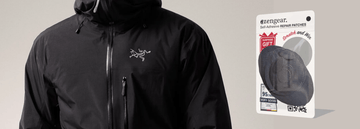Solo Camping: A Practical Guide to Enjoying Nature Alone
by Emily Jannet on Jan 24, 2024
Embarking on a solo camping adventure is a transformative experience that allows you to reconnect with nature, find solace in solitude, and challenge yourself in unique ways. However, venturing into the wilderness alone requires careful planning and preparation to ensure a safe and enjoyable journey. In this guide, we'll explore tips and tricks for solo camping that will help you make the most of your solitary sojourn into the great outdoors.
Choose the Right Location
Selecting the right camping location is crucial for a solo trip. Opt for well-established campgrounds with a good safety record, especially if you are new to solo camping. Check for any regulations or permits required for the area and ensure you're aware of the local flora and fauna. Research the terrain and weather conditions to be adequately prepared.
Inform Others of Your Plans
Before setting out on your solo camping expedition, let someone know about your plans. Share your itinerary, including details such as your intended camping location, expected return date, and any specific trails or routes you plan to take. This ensures that someone is aware of your whereabouts, providing an extra layer of safety.
Pack Light, Pack Smart
Solo camping requires careful consideration of your gear. Keep your backpack lightweight by focusing on essential items. A sturdy tent, sleeping bag, cooking equipment, and weather-appropriate clothing are must-haves. Don't forget a reliable map, compass, or GPS device, as well as a well-stocked first aid kit. Prioritize versatility and durability when choosing your gear.
Master Essential Camping Skills
Knowing fundamental camping skills is essential when you're on your own. Practice setting up your tent before the trip, learn basic navigation techniques, and familiarize yourself with campsite etiquette. Being self-reliant in these skills will boost your confidence and make your solo camping experience more enjoyable.
Stay Hydrated and Well-Fed
Proper nutrition and hydration are key to sustaining your energy during a solo camping trip. Pack lightweight, non-perishable foods that are easy to prepare. Bring a water purification system to ensure a safe water supply. It's always a good idea to carry extra snacks, just in case your journey takes longer than expected.
Mindful Campfire Safety
If your camping destination allows for campfires, practice responsible fire safety. Bring a compact and reliable stove for cooking, a fire starter, and use established fire rings if available. Be aware of any fire restrictions in the area and never leave a fire unattended. Make sure to fully extinguish the fire before leaving your campsite.
Embrace the Silence, Be Mindful
Solo camping provides a unique opportunity for self-reflection and mindfulness. Take the time to appreciate the silence and beauty of nature. Disconnect from electronic devices and immerse yourself in the sounds of the wilderness. Be aware of your surroundings, stay present, and fully embrace the solitude.
Prepare for Changing Weather
Nature can be unpredictable, so it's crucial to prepare for changing weather conditions. Pack layers to adjust to temperature fluctuations, and bring rain gear even if the forecast looks clear. Check the weather forecast regularly leading up to your trip, and be ready to adapt your plans accordingly.
Be Wildlife Aware
Research the local wildlife in the area you'll be camping and understand how to coexist safely. Store food securely to avoid attracting wildlife to your campsite. Carry bear spray if you are in bear country and know how to use it. Respect wildlife from a distance and observe without disturbing their natural behaviors.
Trust Your Instincts
Your intuition is a powerful tool in the wilderness. If something doesn't feel right, trust your instincts. If a trail seems unsafe or the weather takes an unexpected turn, be prepared to alter your plans. Solo camping is about enjoying the experience, and your safety should always take precedence.
Solo camping offers a unique opportunity for self-discovery, tranquility, and a deep connection with nature. By following these tips and tricks, you can ensure a safe and enjoyable solo camping experience. Remember to plan meticulously, pack wisely, and embrace the freedom that comes with venturing into the wilderness on your own. Happy camping!





